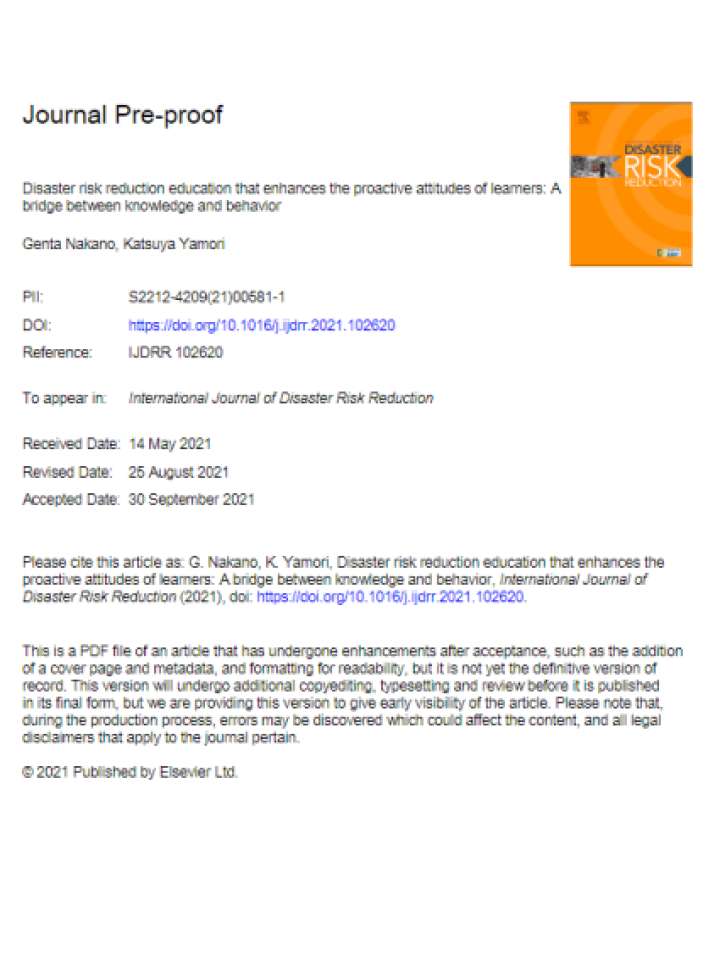Disaster risk reduction education that enhances the proactive attitudes of learners: A bridge between knowledge and behavior
This study comprises research on disaster risk reduction education (hereafter, DRR education) focuses on educational acts that take place between instructors and learners. Current research principally analyzes the knowledge and skills transmitted from instructors to learners, with the expectation that instructors teach learners knowledge and skills so that learners can engage proactively in DRR-related activities and respond appropriately to an actual disaster. However, previous studies have pointed out that increased knowledge and skills do not necessarily lead to behavioral changes in learners. Why proactive attitudes are not fostered by current DRR education is underpinned by three approaches: (1) active instructor/passive learner approach, (2) knowledge-transmission approach, and (3) short-term knowledge evaluation approach. These three approaches, collectively termed the “transmission paradigm,” inhibits the fostering of a proactive attitude. Hence, this study proposes a new “proactive attitude paradigm” which consists of the (1) instructor/learner fusion approach, (2) participation in a community of practice approach, and (3) long-term commitment evaluation approach. The methodology suggested in this study has been applied to a teacher training project in Nepal.
The findings show that the application of the new paradigm confirmed the effectiveness of at least the instructor/learner fusion approach and participation in a community of practice approach. As teachers accumulated experience carrying out DRR education, the project integrated into DRR education the creation of a teacher's manual by the teachers, rather than solely by DRR education experts or by the Department of Education. Three years after the project ended, two out of the eight schools had continuously utilized the manuals, thereby maintaining the proactive attitude of the teachers and confirming continuous DRR education. Without response from the other schools, however, the long-term commitment evaluation approach requires further study to examine its effectiveness. Further practical study of DRR education with the aim of closing the gap between knowledge and behavior by adopting the proactive attitude paradigm will be the focus of future research.
Explore further
